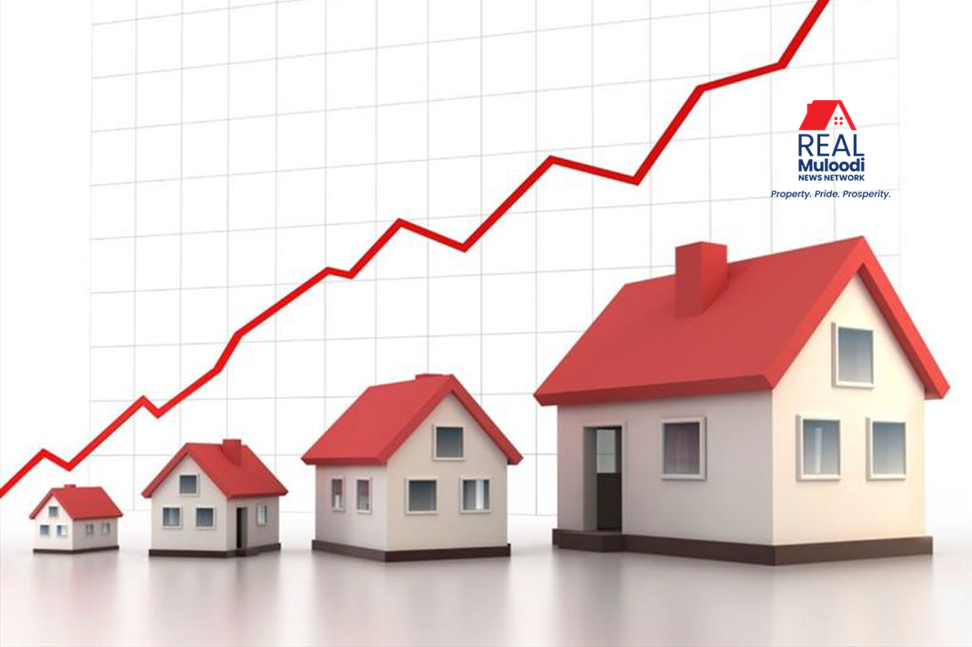UGANDA, Kampala | Real Muloodi News | Uganda’s economic landscape experienced significant improvements in the second half of 2023, outpacing the same period in 2022. The strong growth in the Kampala Property Market in 2023 reflects positive economic indicators, increased consumer spending, and strategic developments in various real estate segments.
According to data from the Uganda Bureau of Statistics, the economy achieved a growth rate of 5.2% in the fiscal year 2022/23, compared to 4.6% in 2021/22.
The boost in economic performance can be attributed to multiple factors, including continued recovery in the tourism sector, export diversification, agro-industrialisation, and investments in the oil and gas sector. The services sector emerged as the primary contributor to the Gross Domestic Product (GDP) at 42.4%, followed by the manufacturing sector at 26%, and the agricultural sector at 23%.
These positive trends translated into increased household real incomes, leading to higher consumer spending in various sectors, including real estate.
Knight Frank’s detailed “Kampala Market Performance Review H2 2023” delves deeper into the real estate dynamics, providing stakeholders valuable insights into the trends that shaped the Kampala Property Market during this period and guiding future investment and development decisions.
Residential Sector Performance
Prime Residential Market
The Knight Frank report highlights that between June and December 2023, the prime residential market, encompassing areas like Kololo, Nakasero, and Naguru, witnessed a substantial year-on-year growth of six per cent.
Notably, two-bedroom apartment rents increased by four per cent on average, while three-bedroom apartment rents saw a one per cent year-on-year growth.
The demand for prime apartment units, driven by expatriate staff unable to secure standalone houses within their rental budget, contributed significantly to this growth. This growth is attributed to the completion of prime apartment units in these areas, offering spacious living environments and enhanced amenities.
Shift in Preferences and Suburban Development
Expatriate staff, facing budget constraints for standalone houses, contributed to the high demand for apartments in prime areas. However, the actual demand from the oil and gas sector fell short of initial projections.
The preference for standalone houses diminished in Nakasero and Kololo, transforming these regions into commercial areas with modern apartment blocks.
Prime suburbs such as Muyenga, Buziga, and Munyonyo experienced increased construction activity, catering to the growing demand for middle-income-priced homes below USh350 million.
Prime Suburbs Expansion
Prime suburbs like Muyenga, Buziga, and Munyonyo experienced increased construction activity, reflecting developers’ efforts to expand the catchment area for prime residential demand beyond traditional Central Business District (CBD) locations. This expansion allows for greater creativity and innovation in design, unit sizes, and functionality.
Popularity of Secondary Suburbs
Secondary suburbs, including Kulambiro, Kikaya, Mulago, and Ntinda, sustained demand for middle-income-priced homes below USh350 million. This led to the construction of more multi-storey homes to cater to the demand, integrating residential and commercial elements within prime residential areas.
Upcoming Residential Projects
The Knight Frank report highlights a robust pipeline of approximately 600 new units expected to enter the market in Nakasero, Kololo, and Naguru in the next two years, representing a 14 per cent increase compared to H2 2022.
Condominium Demand and Office Space Trends
Demand for condominium apartment units in the 10-12km radius from the city center priced between $150,000 and $200,000 in locations like Lubowa, Mbuya, Kyambogo, Makindye, Mutungo, Muyenga, Ntinda, Munyonyo, Buzinga, and Luzira remained high in H2 2023.
Grade A and Grade AB Office Spaces
Demand for Grade A prime office space increased by 10 per cent year-on-year, reaching USh63,000 ($16.5) per square meter, while Grade AB spaces saw a 12 per cent year-on-year increase to USh57,000 ($15) per square meter.
There was an overall improvement in prime office occupancy, with vacancy rates reduced by per cent compared to H2 2022.
Tenant Preferences
Tenants seeking units under 200 sqm accounted for 47 per cent of inquiries, while demand for larger spaces decreased. Only 29 per cent sought spaces in the 200-1,000 sqm range, and 24 per cent sought spaces above 1,000 sqm.
Retail and Commercial Developments
The second half of 2023 witnessed the introduction of new retailers, including Strat Bridal, Oak Café, Krunchix, Eden Gym, The Patio, Myavanna, Black Drip, and Uhome.
The emergence of new international and regional retailers was, however, impacted by stringent testing requirements set by the Uganda National Bureau of Standards (UNBS).
Industrial Space Dynamics
Rental Rates and Demand
Rental rates for industrial spaces remained relatively stable in H2 2023, ranging from $3 to $7 per square meter for warehouse space.
The demand for industrial space was driven by continued business growth, with the highest demand recorded for space sizes ranging from 300-1000 sqm.
Preference for Ownership
Companies in the automotive, manufacturing, interior design, pest control, pharmaceutical, and beverage industries showed a preference for buying their premises instead of renting.
Areas like Bweyogerere, Namanve, and Kawempe gained popularity due to more affordable land prices and improved infrastructure.
Future Industrial Developments
Several pipeline developments are expected to bring over 40,000 sqm of warehouse space to the market in 2024, catering to both rental and sales demands.
Demand for industrial space is primarily driven by agro-processing, renewable energy, construction, cold storage, and technology sectors.
READ MORE LIKE THIS:



